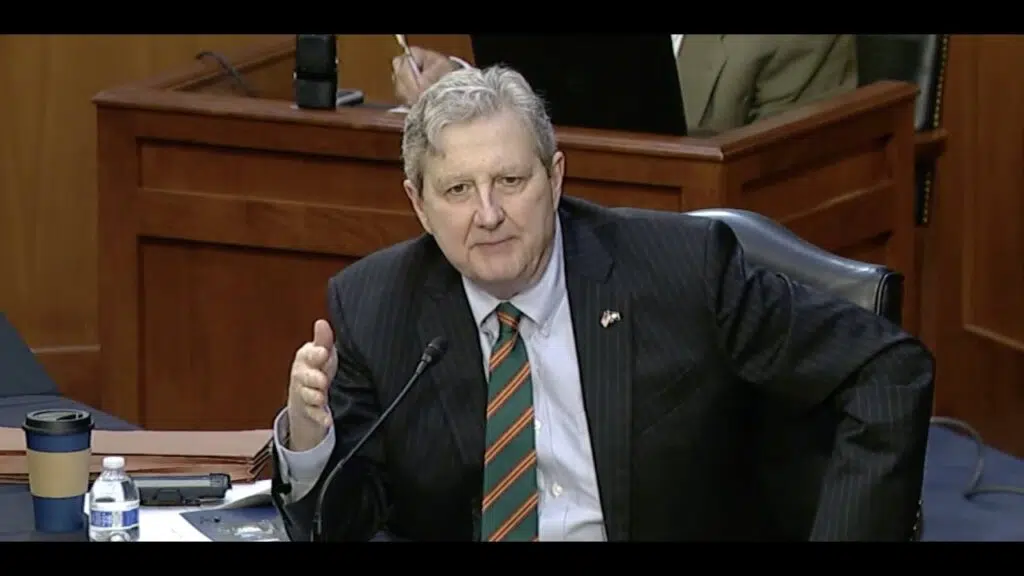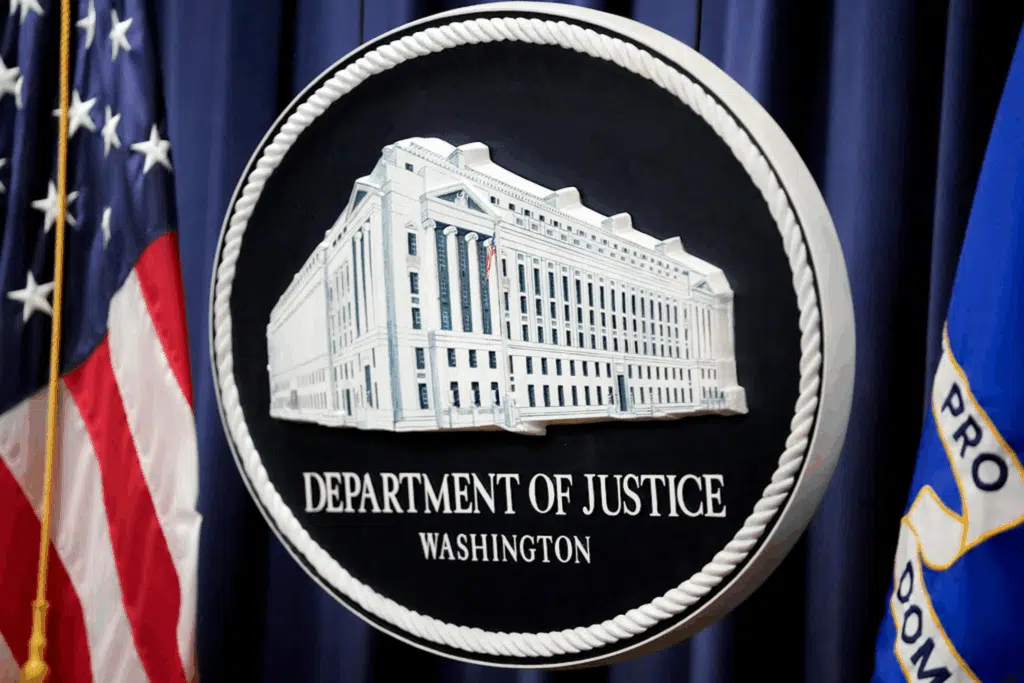
Kennedy To Powell: “You’re Trying To Put People Out Of Work”
Here’s an interesting bit of video. It’s an exchange in a Senate committee hearing between Sen. John Kennedy and Fed chairman Jerome Powell on the latter’s strategy of elevating interest rates.
Powell isn’t necessarily a bad guy for doing it, after all – while we have no particular brief for the Federal Reserve here at RVIVR and we’re very much on board with the idea of reining it in through audits and other controls, one of the defenses which can be made of the Fed is that with respect to its core mission, that of using the money supply to attempt to promote a healthy economy, it is largely at the mercy of the federal government itself.
As Powell has noted, when the federal government is guilty of runaway deficit spending, it’s inflationary. That makes the Fed, in its efforts to control inflation, a necessary hindrance on economic growth because its job is to raise interest rates to choke off the demand side of the economy.
Inflation is, after all, a function of that relationship between demand and supply. Inflation happens when there is too much money chasing too few goods and services within an economy. So if there aren’t enough semiconductor chips, or eggs, or toilet paper, the price of those things will rise.
And in Joe Biden’s economy there are shortages of all kinds of things because stupid federal policy creates them on both sides of the equation – runaway federal spending puts too much money in the hands of consumers by paying people not to work and other similarly stupid actions, while the overregulation of the productive sector then restricts the ability of producers to meet that rising demand by coming up with more stuff to sell.
And then it falls to Jerome Powell to try to stabilize the situation. He can’t promote supply through lowering interest rates, because doing that will further fuel demand. All he can do is raise rates in hopes of choking off demand and restoring equilibrium.
But in doing so he’s going to cause pain. After all, when the Fed raises interest rates so do the banks, and when the banks raise interest rates your adjustable-rate mortgage payments go up, for example, and that could lead to foreclosures and all kinds of other miseries.
Kennedy teases a lot of this out of Powell.
“Let’s try to unpack this then,” he begins. “I’m not trying to trick you. You’re raising interest rates. You’re raising interest rates to slow the economy, are you not?”
“Yes, to cool the economy off,” comes the response.
“And one of the ways you measure your success – other than fluctuation and gross domestic product – is the unemployment rate, is it not?” asks Kennedy.
“[It’s] one of the measures,” says Powell.
“Ok. So, in effect – I’m not being critical – when you’re slowing the economy, you’re trying to put people out of work. That’s your job, is it not?”
Powell objects to that. “Not really,” he says. “We’re trying to restore price stability.”
But that doesn’t back Kennedy off.
“No, you’re trying to raise the unemployment rate,” says the senator. “I know you don’t like the phrase, so let me strike it. You’re trying to raise the unemployment rate, are you not?”
“No, we’re not trying to raise [unemployment],” Powell replies. “We’re trying to realign supply and demand, which could happen through a bunch of channels, like, for example, just job openings …”
Kennedy cuts him short.
“Let me put it another way, ok?” he jumps in. “The Economist did a wonderful study. They looked at 10 disinflationary periods in America going all the way back to the 1950s. Disinflation is what you’re trying to do. It’s the slowing in the rate of inflation. Am I right?”
“Yes,” Powell replies.
“In other words, prices don’t go down, they just don’t go up as fast. Deflation is when prices actually go down. You’re trying to achieve disinflation, are you not?” Kennedy keeps going. Powell agrees that’s what the Fed is attempting to do.
Then comes Kennedy driving home his point.
“Ok, based on history and the 10 times that we got inflation down since the 1950s, in order to reduce inflation by two percent, unemployment had to go up 3.6 percent. Now, that’s history, is it not?”
Powell says unemployment rising has a lot to do with recessions and market downturns, which leads to this from Kennedy…
“Ok, right now, the current inflation rate is 6.4 percent and the current unemployment rate is 3.4 percent. Now, if history is right, I’m not asking you to, again, blame anybody, but if history is right, unless you get some help in order to get inflation down from 6.4 percent to, let’s say, 4.4 percent, the unemployment rate is going to have to rise to 7 percent based on history.”
“That’s what the record would say,” Powell allows.
“Okay, and to get inflation down to 2.2 percent, based on history — an immutable fact — unemployment would have to go to 10.6 percent, would it not?” Kennedy concludes. Powell really doesn’t have a response.
It’s a great exchange, and while you could conclude that it’s a great dunk on Powell, what’s more instructive is the position Biden’s atrocious economic policies have put the Fed chairman in. He shouldn’t be having to walk this tightrope. But this is what happens when your federal government is run by Third World socialists who not only don’t understand market economics but are genuinely hostile to it.



